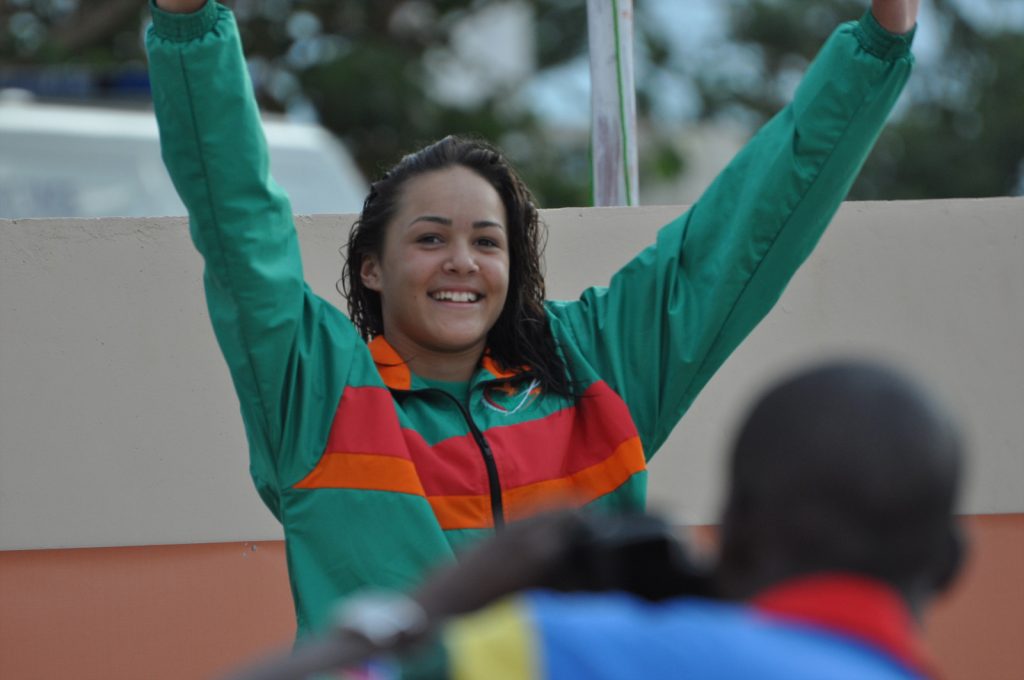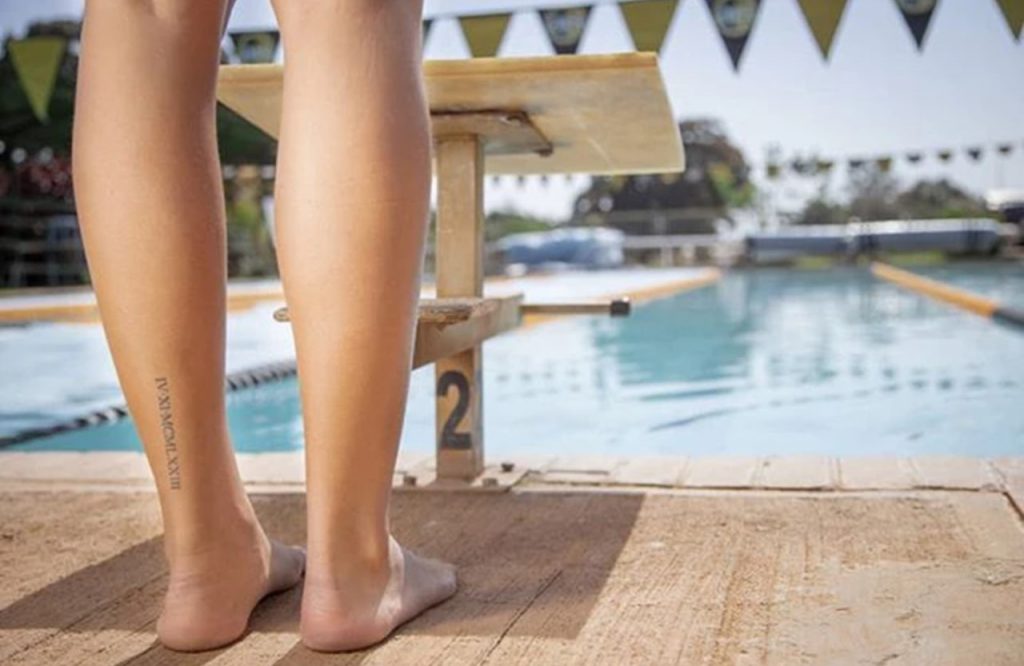“African Federations must realise how swimming can change lives:” Zambian sports woman of the year Tilka Paljk on swimming’s lack of recognition
Tilka Paljk is the poster girl for Zambian sport. The 21-year-old is Zambia’s number one swimmer, the nation’s sportswoman of the year, and has nearly booked her place to represent her country at the 2020 Olympics in Tokyo.
However, her success in the sport masks the difficulties African swimmers face when attempting to compete on the world stage. For Tilka, it’s time to speak out.
Due to low-quality swimming facilities, many African swimmers tend to move to other countries — namely the USA — where swimming is well-funded. In fact, many of those who choose to remain in Africa tend to abandon the pool altogether because of how difficult it is to make a living.
But Tilka’s decision to move to the States on a FINA scholarship to SPIRE Swimming Academy in Ohio in 2017 has paid dividends. She’s convinced that the coaching she’s received in America has positively impacted her swimming.
“Training around the world has all round made me a better swimmer mentally and physically,” Tilka told the Sports Gazette.
“Swimming in Zambia gets little funding. Most of it comes from FINA, who funds our big tours such as the Africa Senior Championships and World Championships.
“Swimming needs to become a sport where athletes are paid by the club to swim for them like in football, but unfortunately swimming in Zambia is not that big so good athletes are not valued enough.”
After completing her FINA scholarship earlier this year, Tilka moved to South Africa — a country with one of the biggest swimming cultures in Africa – in order to further enhance her training.
“Swimming is taken more seriously there, with higher quality coaches and better facilities. Egypt also has some amazing swimmers, but I can’t say swimming is big there because most of their swimmers have to train in America.”
“Zambia and the federation need to realise that athletes can make a living from swimming.”
Lack of funding is only half of the issue, however. This, combined with her struggles to secure sponsorship, caused her to doubt the reasons behind her initial passion for swimming.

Tilka started swimming at the age of five at an after-school programme. She began competing four years later and by 11 years old, she had already represented Zambia for the first time at the CANA Zone 3&4 Games in Zimbabwe, a competition wherein 14 Sub-Saharan countries participate.
Not coming from a wealthy family, Tilka explained that what makes her different from other swimmers in Zambia is her persistence, despite her struggles.
“I still did my best to try and keep swimming and at a point where my mum was struggling with being a single parent. She couldn’t pay for my swimming fees or to go on tour.
“But because I was good enough, my federation at least paid for the trips, and the club that I was swimming for at the time — the Lusaka Dolphins — let me still train with them for free.”
Tilka had many barriers to overcome in order to compete successfully; none more so than the family trauma that has had a pivotal impact on her life.
“I kept going because my mum was diagnosed with cancer and my only outlet — somewhere where I can go and feel like life isn’t falling apart — was in the pool. I swam as much as I could. I went to every session that I could just to get my mind off it.”

Driven by the memory of her mother, Tilka declared: “It was difficult after she passed away because I realised that I had no other reason to swim anymore but for myself. So I continued because it made me happy and that’s how I got better.”
She continued: “My family, friends — including coaches — and club supported me through everything I went through. They believed in me and still do. Their way of supporting me is making jokes about my swimming and telling me not to drown.
“The only reason I am a better and a stronger swimmer is because I have been through the lowest point in my life and I always tell myself that it can only get better from where I am.”
Tilka was named Swimmer of the Year by the Zambian Amateur Swimming Union in 2014/15 and was awarded the 2013 Sports in Action, Young Sports Person of the Year Award. This year she was announced Sportswoman of the Year at the 2018 Zambian Woman of the Year Awards.
She has made it to World Championships and the semi-finals of the Common Wealth Games this year and will be heading off to China in December for the Short Course World Championships.
These achievements helped Tilka secure sponsorship from Latitude 15, for free gym membership, and Awane Skin, a skin care product company.
“Swimming in Zambia is a growing sport, but it is obviously not as popular as football,” she added.
“However, swimming in Africa is getting much better, the standards are getting higher, we have swimmers from Africa winning medals at the Olympics and World Championships and breaking world records.
“Compared with other continents I can say we have a few swimmers that are up there with the best. We just need more support.”
Featured photograph/Tilka Paljk